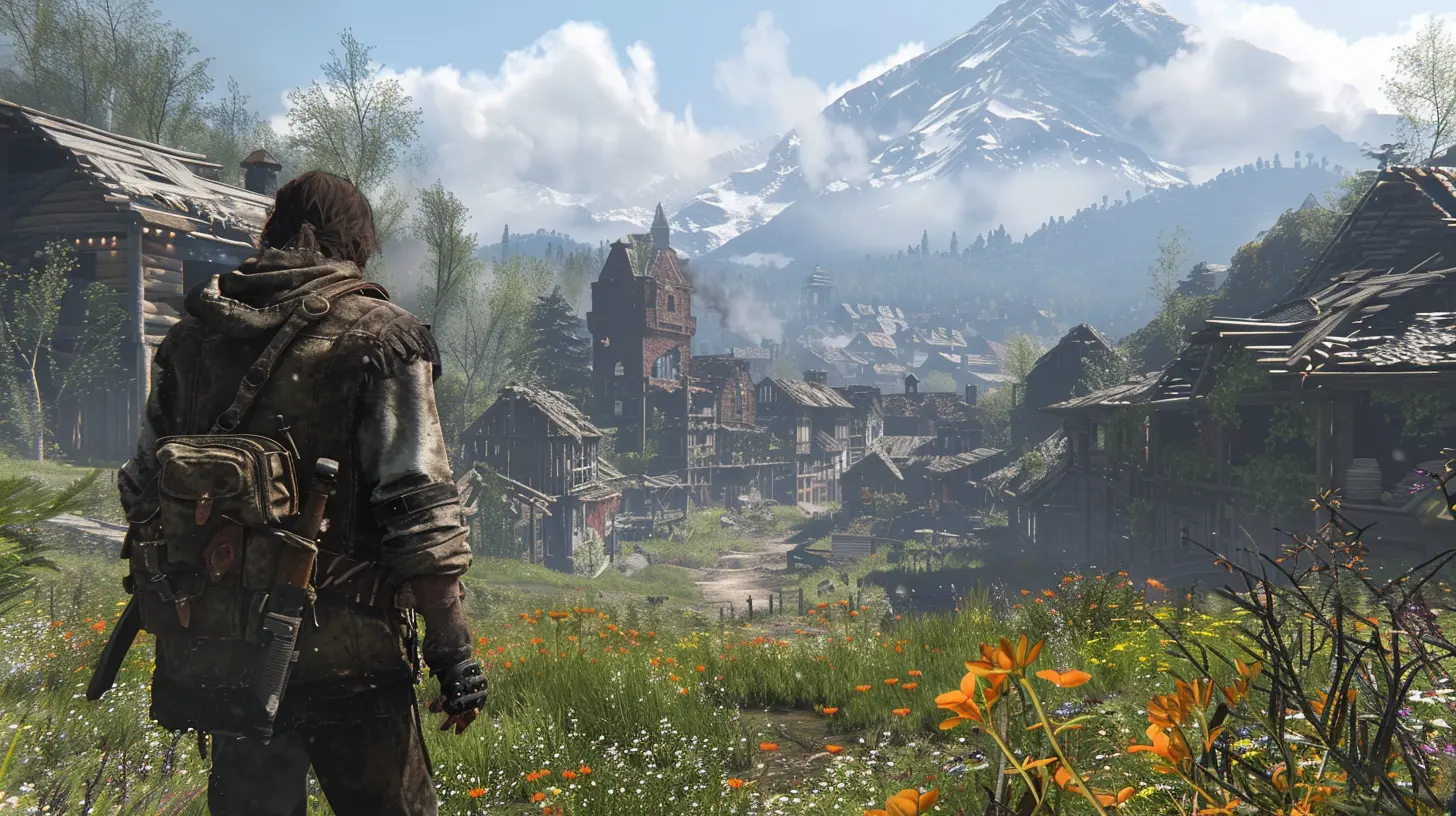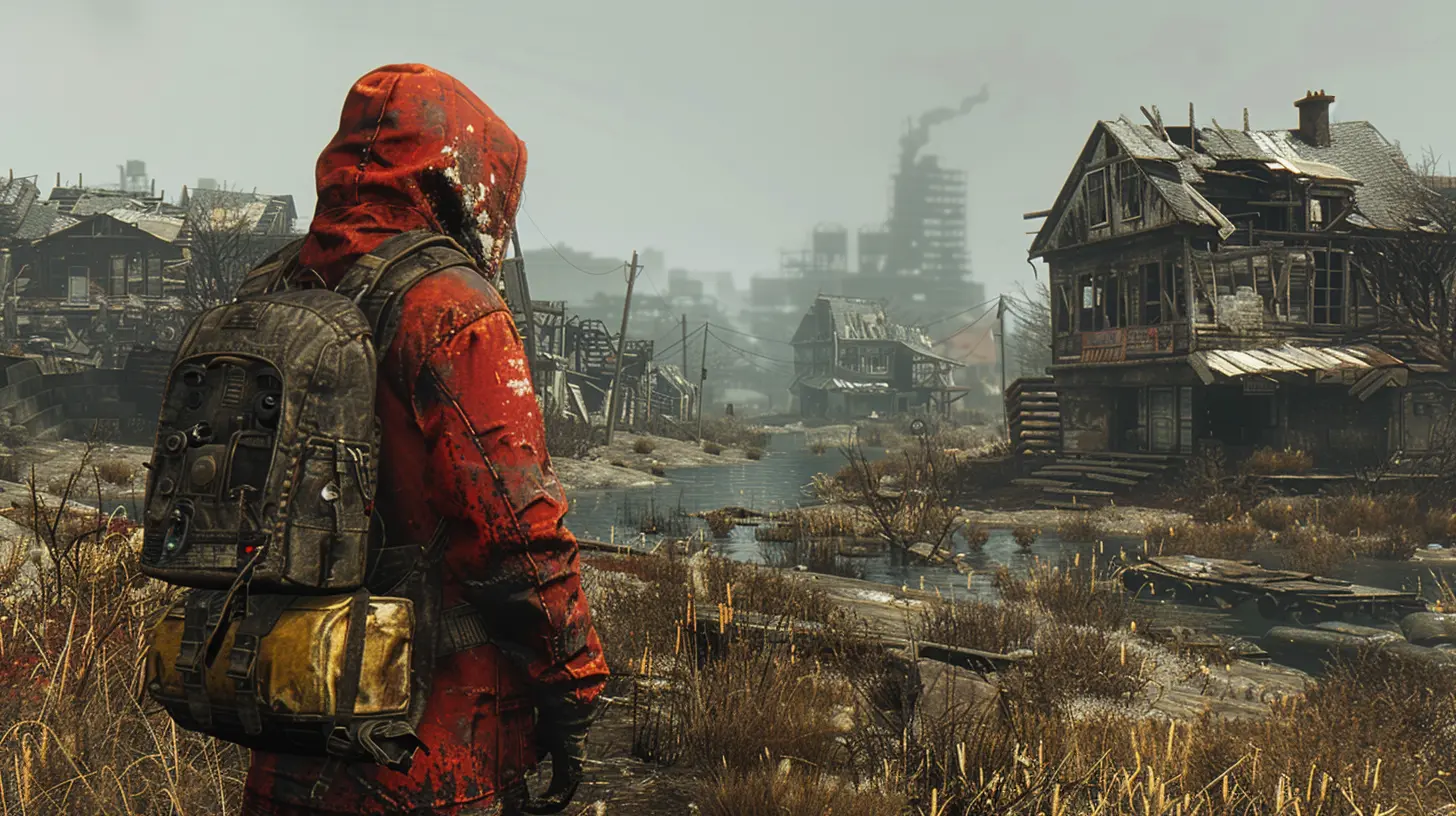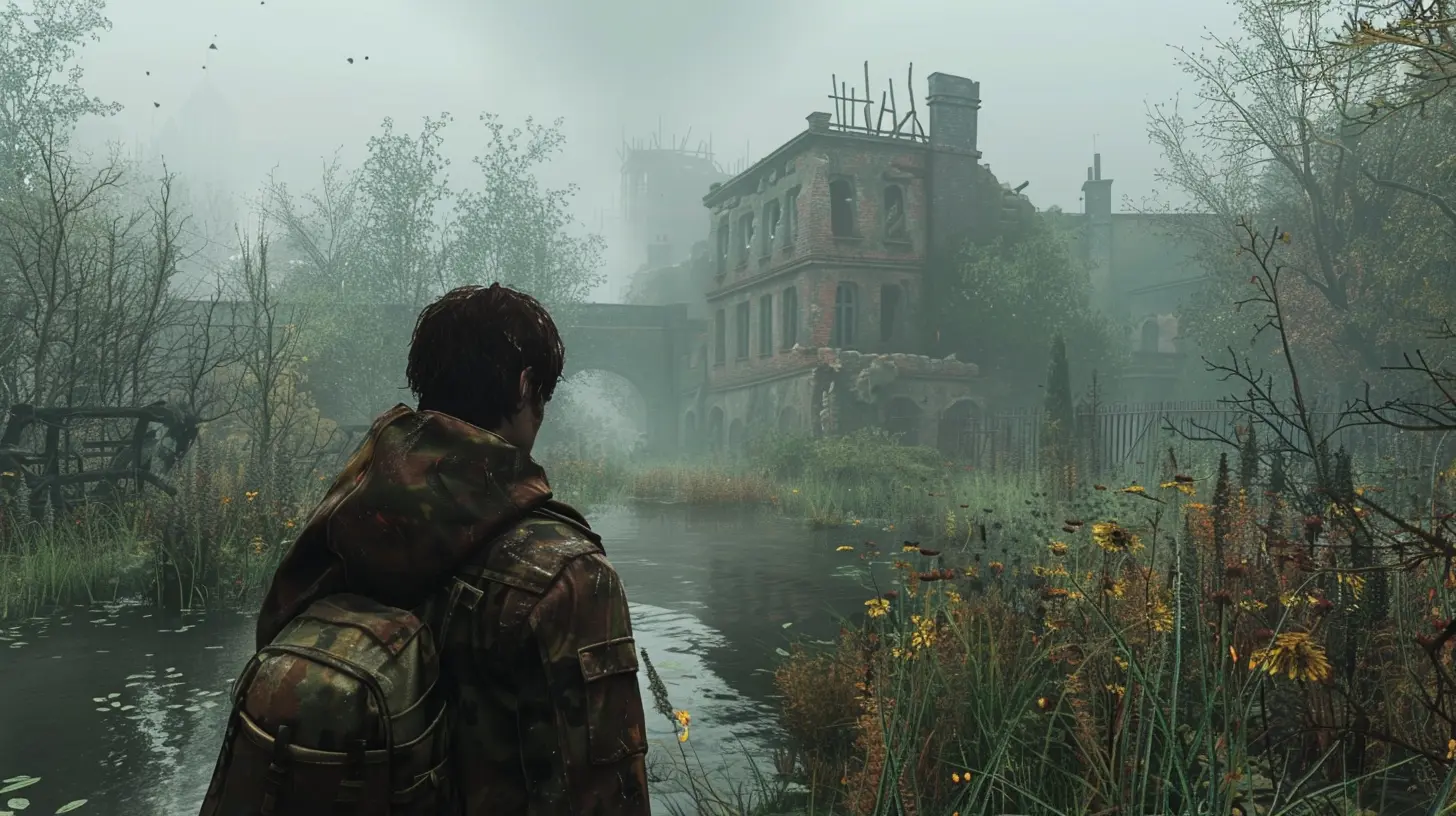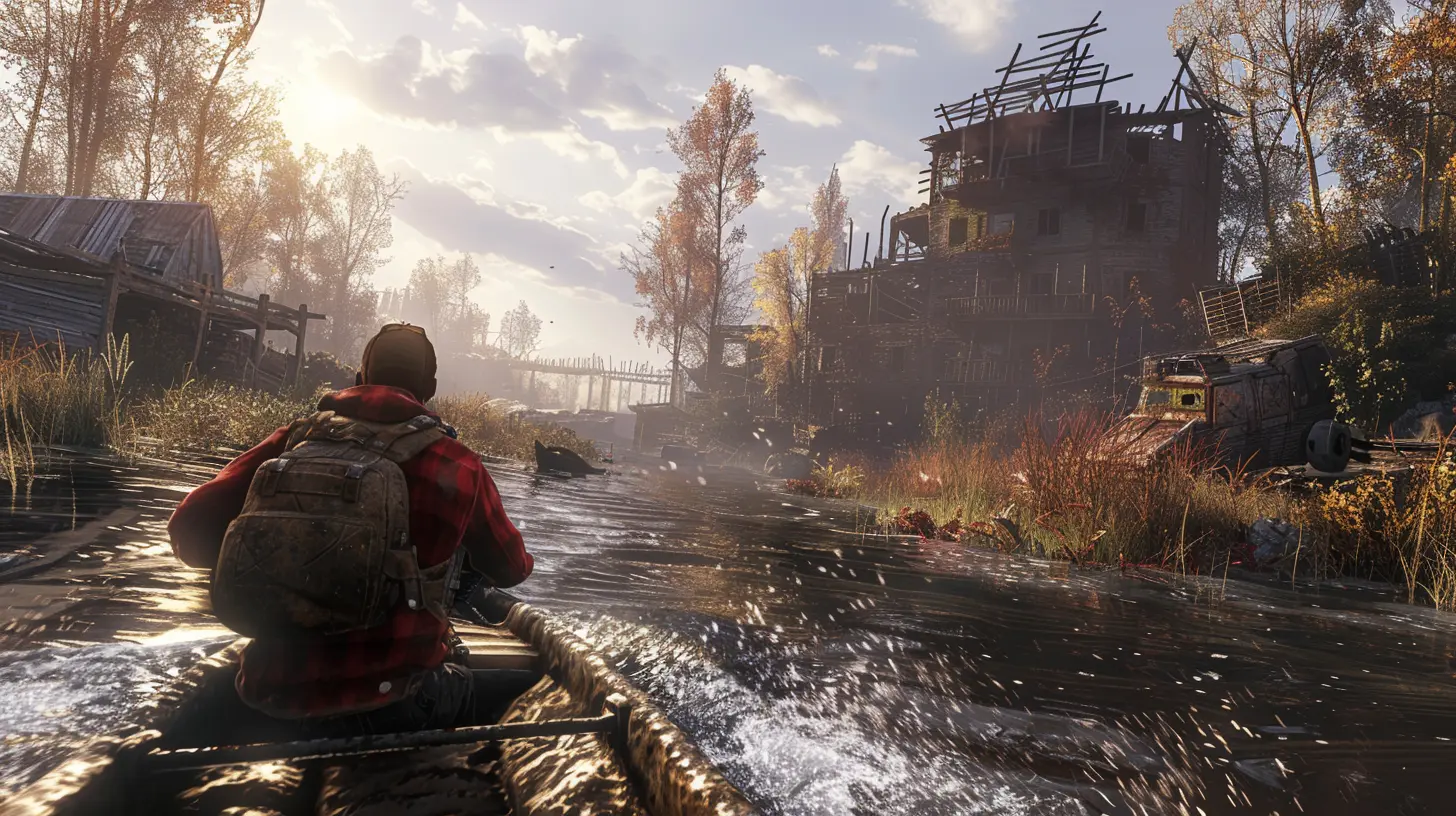The Appeal of Scavenging in Open-World Survival Games
26 June 2025
When you think about open-world survival games, what's the first thing that comes to mind? Probably the sense of adventure, freedom, and maybe even a little anxiety about whether you’ll make it to the next day, right? At the heart of many of these games lies a core mechanic that keeps players coming back for more: scavenging. It’s that endless hunt for resources, that itch to loot every last corner of the world, and the thrill of piecing together your survival strategy.
But why is scavenging so appealing? And why does it resonate so strongly with gamers across the globe? Let’s dive in and uncover why scavenging is such a central pillar of open-world survival games and why it feels so damn satisfying.
What Makes Scavenging So Addictive?
Let’s be honest. There’s something oddly therapeutic about scouring the virtual world for supplies. Whether it’s rummaging through a rusted-out car for scraps of metal or breaking into an abandoned house in hopes of finding canned beans, the act of scavenging triggers a unique kind of excitement. Here are some reasons why it hooks us:1. The Thrill of the Hunt
At its core, scavenging scratches that primal itch we’ve all carried deep in our subconscious: the need to gather and survive. It's like a treasure hunt, only instead of shiny gold coins, you're desperately looking for duct tape, wood planks, or even dirty water to stay alive. It’s that constant "just one more search" that keeps us glued to the screen.You never know what you’re going to find, and that unpredictability is what makes it so fun. Every abandoned gas station or overgrown ruin feels like a potential goldmine—or a complete bust. Will you find a rare weapon or just a pile of useless junk? The not-knowing is what keeps us scavenging, one dilapidated shed at a time.
2. A Sense of Progression
In survival games, scavenging often directly ties into your progression. You start with nothing but your wits and maybe a rusty knife, and slowly but surely, you upgrade. That box of screws you scavenged? It’s now part of a makeshift water purifier. Those scraps of cloth? Bam, you’ve got makeshift armor. It’s a process that makes every discovery feel earned and meaningful, no matter how small.Unlike traditional RPGs where progression is tied to levels or experience points, survival games make you work for every improvement. Fancy a better weapon? You’ll need to scavenge the right parts. Want to cook a decent meal? You’ll need to scour the area for food. This progression system, built entirely around scavenging, gives players a profound sense of achievement. After all, nothing feels better than knowing your hard work (and hours of rummaging) paid off.
The Role of Scavenging in Building Atmosphere
Scavenging isn’t just about gameplay mechanics—it also does a lot of heavy lifting when it comes to setting the tone of a survival game. A good scavenging experience can immerse you deeper into the world and make the stakes feel incredibly real.1. World-Building Through Items
Every item you pick up tells a story. That dusty photograph you found in a locked drawer? It hints at a life that used to exist in this world. The crumbling map or handwritten note? It’s a clue to what went wrong—why the world is now a dangerous and desolate place.These seemingly mundane items add layers of narrative without the game having to spoon-feed you exposition. They make the world you’re scavenging through feel alive (or at least like it was alive), which pulls you further into the experience. Every broken-down building or crumbling car feels like it has a purpose, and it’s all because of the scraps you find within them.
2. Tension and Risk
Scavenging often comes with its own set of risks. Whether it’s dodging zombies, rival players, or dangerous wildlife, you’re rarely alone in open-world survival games. And that tension? It’s what makes scavenging feel so rewarding.Think about it: you’re creeping through an abandoned building, flashlight flickering, when you hear a low growl in the distance. Do you take your chances and search that promising-looking chest, or do you cut your losses and bail? These moments of risk-versus-reward are the bread and butter of scavenging mechanics. The stakes are high, but that only makes success sweeter.
How Scavenging Encourages Creativity and Strategy
Survival games are rarely straightforward, and scavenging often forces players to think outside the box. Do you hoard supplies and risk becoming over-encumbered, or do you travel lighter and focus on essentials? Do you combine your resources to craft a weapon now, or save them for something potentially better? Scavenging isn’t just about finding items—it’s about making decisions.1. Crafting and Resource Management
Most survival games pair scavenging with crafting systems, which adds another layer of depth. You’re not just grabbing random junk—you’re constantly thinking about how to use it. A broken bottle might seem useless at first, but combine it with some duct tape and suddenly you’ve got a makeshift weapon. Scavenging in these games isn't just about finding resources; it’s about imagining the possibilities they bring.This also ties into resource management. Your inventory is limited, and not every item is worth keeping. Deciding what to hold onto and what to leave behind can often feel like a mini-game in itself. That split-second decision to ditch one resource for another can have huge consequences later, which adds an extra layer of strategy to scavenging.
2. Environmental Awareness
Another charm of scavenging is how it makes you hyper-aware of the world around you. Players quickly learn to scope out areas for loot, whether it's noticing a slightly ajar door or spotting a glint of metal in a pile of rubble. This sense of attention to detail is surprisingly satisfying.It’s like the game is training you to see the world differently—to value what others might overlook. In a way, scavenging makes the landscape itself feel like a puzzle, just waiting to be solved.
Why Scavenging Connects With Players Emotionally
Now here’s the part we don’t talk about enough: scavenging isn’t just about objects—it’s about emotions. It taps into something deeply human: the drive to overcome adversity. In open-world survival games, every scrap of metal or bandage represents hope. It’s a chance for survival, a glimmer of light in an otherwise bleak world.There’s also something deeply personal about scavenging. You’re not just following quests or objectives; you’re making decisions for yourself. Every item you pick up (or leave behind) feels like it reflects your playstyle, your priorities, and your approach to survival. It’s a hugely empowering experience, even if it’s happening in a crumbling apocalyptic wasteland.
The Future of Scavenging in Survival Games
As survival games continue to grow in complexity, scavenging mechanics are only going to get better. We’re already seeing games like The Last of Us Part II and Subnautica push the boundaries, blending scavenging with emotional storytelling and jaw-dropping realism. Future survival games could even bring in more dynamic scavenging systems, like procedurally generated loot or AI-powered environments that change based on player behavior.Imagine a game where scavenging is reactive—where the world adapts to how much you’ve looted. If you clear out an area, rivals might take notice and start guarding nearby spots more aggressively. Or maybe over-scavenging a region triggers environmental consequences, like a famine or resource scarcity. The possibilities are endless, and they’re what make the future of scavenging so exciting.
Final Thoughts
Scavenging in open-world survival games isn’t just a gameplay mechanic—it’s an experience. It taps into our primal instincts, challenges our creativity, and immerses us in a world that feels alive (even if it’s crumbling around us). Whether you’re searching for a few scraps to survive the night or piecing together the remnants of a forgotten world, scavenging delivers a level of excitement and emotional connection that few other game mechanics can match. So, the next time you’re in an apocalyptic wasteland, rummaging through a pile of trash for something useful, just remember: you’re not just scavenging—you’re surviving.all images in this post were generated using AI tools
Category:
Survival GamesAuthor:

Kaitlyn Pace
Discussion
rate this article
2 comments
Harper Yates
Collecting loot: the ultimate treasure hunt!
December 11, 2025 at 3:38 PM

Kaitlyn Pace
Absolutely! The thrill of scavenging adds excitement and a sense of achievement, making every find feel like a personal victory in the vast open world.
Viviana Sharpe
Scavenging adds depth and tension to open-world survival games, enhancing exploration and resource management. It immerses players in a constantly evolving environment, where every encounter and find can be crucial for survival. A thrilling experience!
July 8, 2025 at 4:15 AM

Kaitlyn Pace
Thank you for your insightful comment! I completely agree—scavenging truly enriches the gameplay experience by adding layers of challenge and excitement.


